Candidate Profile Page
Robert Kasibante
From salon boss to State House hopeful: The curious rise of Robert Kasibante
On an ordinary day in Wakiso district, you might spot Robert Kasibante leaning against a dusty white Toyota Harrier, phone glued to his ear, smiling as though he’s just discovered the punchline to a private joke.
To many in his home district, he’s the man who ran a beauty school in Kampala and quietly helped hundreds of young Ugandans earn a living. To a growing crowd of supporters, though, Kasibante is something bigger now, the presidential flag-bearer of the National Peasants Party (NPP) and a new voice for Uganda’s rural majority.
It’s quite the leap. Until recently, politics wasn’t his main gig. Kasibante built his name running Victory School of Beauty, a place tucked somewhere between the chaos of Kampala’s commuter taxis and the hum of roadside salons.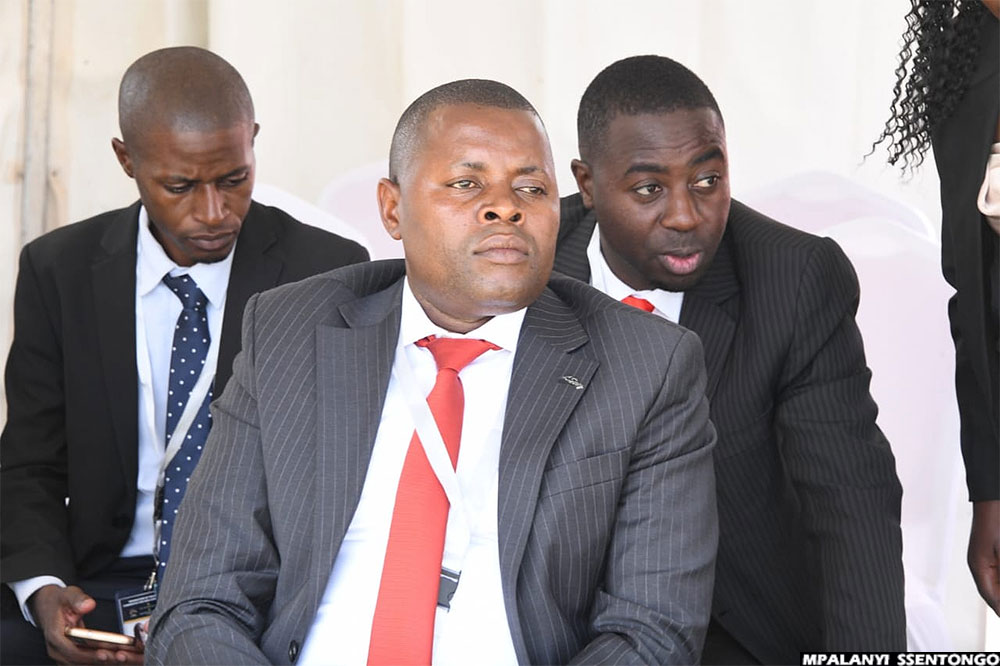
For over two decades, students, mostly ambitious young women with steady hands and sharp dreams, learned to cut, braid, polish and beautify under his watchful eye. Kasibante himself, a sturdy man in his mid-50s with a neat moustache and a “let’s get to work” stare, ran the school like a mission.
“Transformation begins with preparation,” he liked to tell his students, whether they were mixing hair dye or setting up a manicure table. It’s a mantra he seems to have carried into politics.
A first taste of politics and a painful loss
Back in 2021, Kasibante decided to trade hair dryers for handshakes. He ran for the Busujju County parliamentary seat under the ruling National Resistance Movement (NRM) party.
His pitch was simple: Better roads, more jobs, real economic opportunities for farmers. He toured villages, spoke at trading centres, and shook hands until his palm likely ached. But the political field can be rough, especially when you are up against entrenched party machinery.
When the votes were counted, Kasibante was beaten by about 12,000 votes.
It was a sobering moment. He returned to his school and, like any entrepreneur licking his wounds, listened. Conversations with students, clients and neighbours revealed a deep frustration among rural voters. One of his clients, a farmer who came in for a beard trim, told him about the National Peasants Party, a small but determined outfit created to champion farmers. Uganda’s countryside, after all, still feeds the nation, but farmers often feel forgotten in the politics of Kampala.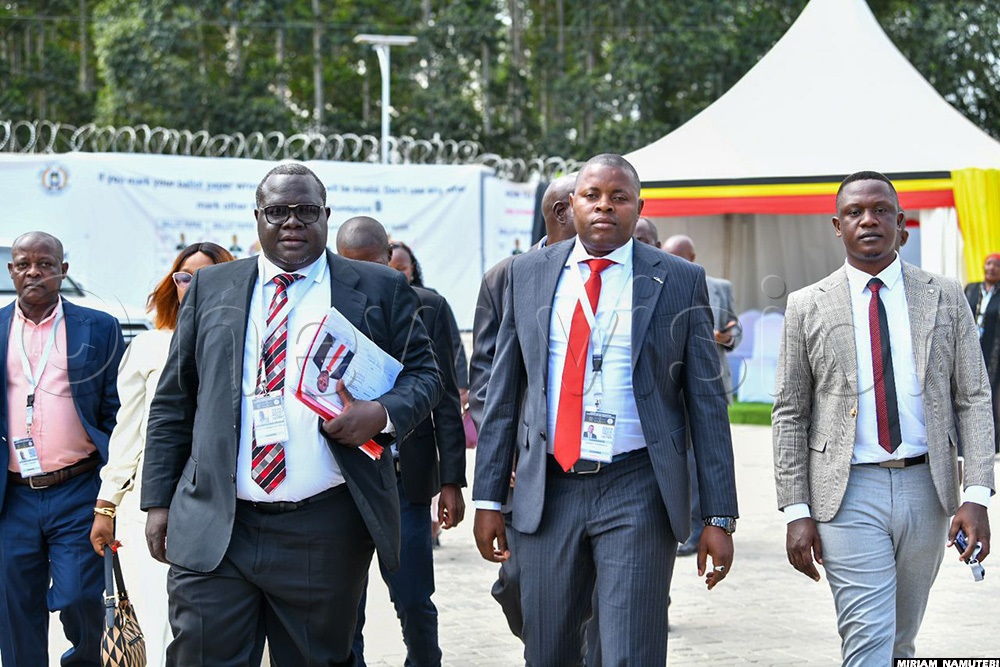
Enter the National Peasants Party
The NPP isn’t new. It was founded back in 2004 by Hajj Elias Lukwago, with the dream of turning the power of peasants — the backbone of Uganda’s economy — into real political influence. For years, it pushed for cheaper farming inputs, fairer land policies and better market access. But the party had stayed small, almost niche.
Then came 2025, and with it, a moment of reinvention. Hajjat Stecia Mayanja — yes, the musician known for her strong voice both on and off the stage — had taken the party’s top job. She first teased the idea of running for president herself. But after some internal soul-searching, the NPP decided it needed someone with grassroots grit and a clean slate. Someone rural Ugandans could call “one of our own.”
Enter Robert Kasibante
On September 5, 2025, at the NPP headquarters in Kasubi-Nabulagala, a modest venue decked with banana plants and framed photos of past farming heroes — Kasibante stood before delegates from 120 districts and accepted the party’s flag. The crowd clapped, whistled and waved the party’s simple symbol: a pen, meant to show the power of documentation and advocacy.
His acceptance speech was plainspoken but firm.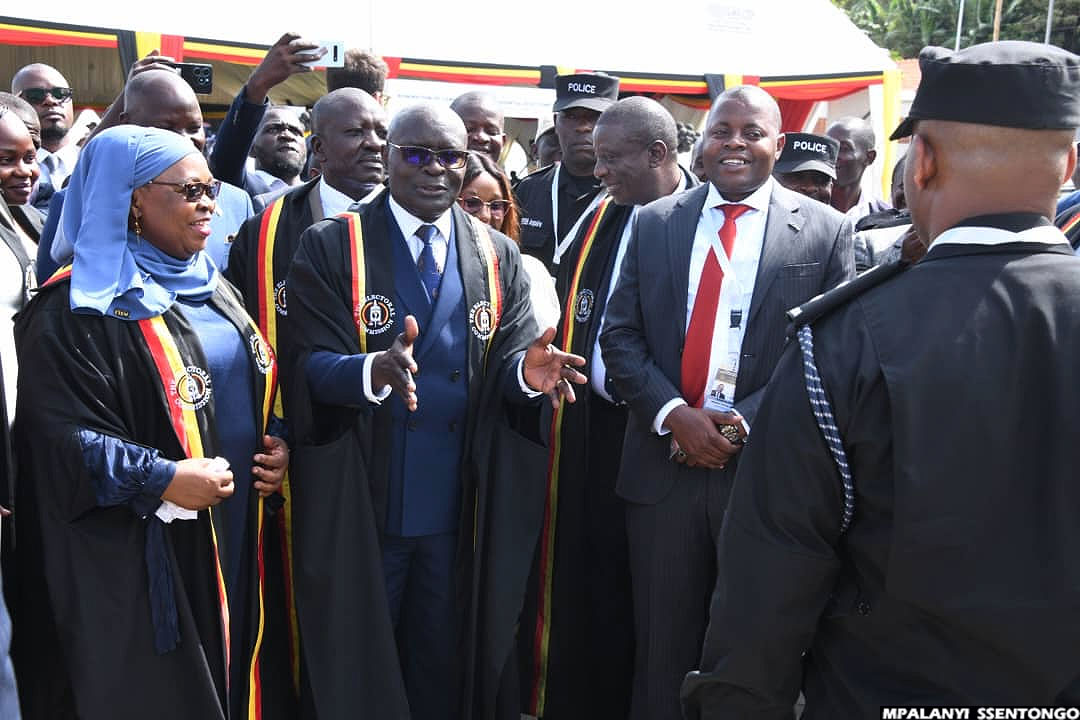
“Politics must bridge divides, not deepen them,” he told the crowd. He invited even disgruntled NRM members to join him and called out the trend of endless party-hopping among politicians.
Kasibante promised to tour the country from his home base in Wakiso to the coffee hills of the southwest and the maize fields of the north. His platform? Giving Uganda’s farmers a seat at the big table, fixing the broken market system, and creating unity in a nation often split by politics.
A rocky road to nomination
But no Ugandan political story would be complete without some bureaucracy getting in the way. On September 16, 2025, the Electoral Commission tossed out Kasibante’s initial nomination papers, citing irregularities in his supporter signatures. It could have been the end right there.
Instead, Kasibante regrouped. He fixed the paperwork, rallied his team, and marched back to the Commission a week later. On September 23, 2025, he was officially nominated — sharing the momentous day with heavyweights, including long-time incumbent President Yoweri Museveni.
For Kasibante, it was a quiet but significant victory — proof that even a man who once ran a beauty school could navigate Uganda’s famously tricky political waters.
Navigating Nomination Hurdles — One Signature at a Time
Ugandan politics is never short on hoops to jump through, and Robert Kasibante got a front-row lesson in just how tight those hoops can be.
To even appear on the presidential ballot, a candidate must gather at least 9,800 signatures nationwide — with no fewer than 100 supporters from each of Uganda’s 135 districts. It sounds simple on paper; in practice, it’s a paperwork marathon.
For the National Peasants Party (NPP), the task became a full-on village affair. Volunteers crisscrossed dirt roads, attended farmer co-op meetings, and knocked on doors to collect signatures.
By mid-September, the party’s secretary general, Sharif Nambale Sentongo, and spokesperson Thomas Bagonza arrived at the Electoral Commission (EC) offices in Kampala’s Industrial Area with thick stacks of forms.
They weren’t alone — 19 other hopefuls showed up to beat the deadline, turning the usually quiet offices into something between a government errand and a high-stakes job interview.
Then came the blow.
On September 16, the EC threw out NPP’s submission, citing irregularities — duplicate entries here, incomplete details there. To party officials, it felt like nitpicking.
“We followed the guidelines meticulously,” Bagonza protested, his voice sharp with frustration. He promised they’d clean up the lists and return.
The rejection wasn’t just an administrative hiccup; it exposed a bigger story. That year, more than 220 people had picked up presidential nomination forms, but very few were likely to survive the EC’s scrutiny. For a small party like NPP, this was a moment that could have crushed morale.
But Kasibante didn’t flinch. He drew on the same discipline that built his beauty school — neat paperwork, checklists, long nights of sorting through details. His team stayed up late cross-checking every name, every phone number, and every district stamp.
By September 22, when nominations officially opened, the NPP’s corrected paperwork finally passed. The next day, September 23, Robert Kasibante walked into the Kololo Independence Grounds to pay his nomination fee and face the cameras.
It was a telling scene. On one side of the vast field, President Yoweri Museveni addressed a sea of yellow-clad supporters, leaning on his familiar message of stability in uncertain times.
On another occasion, Robert Kasibante stood before a smaller but noisy NPP crowd — farmers in gumboots, students in party T-shirts, a few boda riders waving placards — and spoke about rural empowerment and national unity.
Justice Simon Byabakama, the EC chair, confirmed Kasibante’s candidacy alongside other notable names, including Joseph Kabuleta Mabirizi of the Conservative Party.
Even First Lady Janet Museveni weighed in after the day’s ceremonies, urging Ugandans to protect “government achievements” — a subtle warning to challengers like Kasibante and the returning heavyweights such as Bobi Wine, who had also signaled his intent to run despite his turbulent past campaigns.
The milestone wasn’t without its logistical headaches. Security was tight — convoys were discouraged, and the Uganda Police assigned 16 officers to Kasibante’s official campaign vehicle to keep him safe on the road. But for the NPP, the nomination was more than a legal formality.
It was a symbolic leap — the party had moved from the political fringes to standing shoulder-to-shoulder with Uganda’s most powerful players.
For Kasibante himself, it was a quiet victory. The man who once taught students how to hold a makeup brush with precision had now mastered the art of Uganda’s complicated nomination game.
A Platform Rooted in the Soil — and a Bit of Salon Polish
Robert Kasibante knows his audience. Uganda’s heart still beats in its farms, even as cities expand and smartphones light up rural trading centres. Agriculture may contribute more than a quarter of the country’s GDP, but farmers continue to wrestle with unpredictable weather, costly inputs, and poor market access.
Kasibante says it doesn’t have to stay that way.
His campaign centrepiece — with a wink to his beauty-school background — is called the National Beauty and Bounty Initiative. The name may sound playful, but the idea is serious: marry practical vocational training with real support for small-scale farmers.
Think subsidised seeds and fertilisers, affordable irrigation systems for places like flood-prone Wakiso, and youth programs that mix agribusiness with modern skills such as agroprocessing and product branding.
“Every citizen deserves a stake in prosperity,” Kasibante says, pledging to fight for land reforms that give peasant families secure tenure. His plan doesn’t stop at production. He wants to help farmers hold onto their harvests longer and sell smarter — a move aimed at cutting the country’s estimated 30% post-harvest losses.
To test-drive these ideas, the NPP has already been listening to tours in farming belts like Luwero and Mukono.
There, Kasibante and his team sat under mango trees with cotton and cassava growers, asking blunt questions about what breaks their businesses and what could fix them. His solution leans heavily on partnerships — with farmer cooperatives, small processors, and local traders — to create stronger market linkages.
Kasibante also hasn’t forgotten the restless youth in Uganda’s towns and trading centres. Drawing from his Kampala experience, he imagines apprenticeships where young people can learn sustainable farming while adding side skills like cosmetology for extra income. It’s a quirky mix, but it reflects his own path: one foot in the soil, the other in entrepreneurship.
A small party in a big fight
Of course, idealism is easy; winning an election isn’t. The NPP’s war chest is modest compared to the ruling NRM’s state-backed might or Bobi Wine’s slick youth-driven movement. Internal drama hasn’t helped either — when party president Stecia Mayanja performed at an NRM event on nomination day, some members bristled. Kampala MP Muhammad Nsereko openly questioned her loyalty.
Kasibante brushed it off. “Tests of commitment,” he said, urging the party to keep moving forward. Polls — early and patchy as they are — put the NPP at under five per cent nationally. But he’s betting on rural strongholds, places where voter turnout has been low and frustration runs deep.
Reading the 2026 battlefield
As the Electoral Commission prepares to harmonise campaign schedules by September 29, candidates will be slotted for radio time, rallies, and TV appearances under the Presidential Elections Act. Uganda’s two-round system means a winner must snag 50% plus one vote outright. President Museveni did it in 2021 despite opposition cries of foul play.
Kasibante’s playbook focuses on coalition-building — pulling in disillusioned NRM supporters and farmer unions who feel ignored. His home base in Wakiso gives him a starting push, but the bigger plan is ambitious: a 50-district tour before December to drum up recognition in every corner of the country.
The 2026 race won’t just pick a president. Voters will also decide 529 parliamentary seats, plus special representatives for youth, elders, and persons with disabilities. The EC says the voter roll is now about 18 million strong. Security forces have already warned against “hooliganism” as campaign fever builds.
From shears to statecraft
For analysts, Kasibante’s rise is a reminder that Uganda’s political field, though tough, is not entirely closed. His journey — from teaching hair braiding in Kampala to talking about farm subsidies and land reform on the national stage — reflects a democracy still evolving, still testing new voices.
Whether his pen-and-plough movement can turn quiet rural frustration into real votes is the big question. But whatever happens, Kasibante has already done something notable: he’s dragged a once-overlooked party into the national conversation and given Uganda’s farmers a louder, prouder seat at the table.
For a man who spent decades telling beauty students that “transformation begins with preparation,” this presidential run feels like the biggest makeover of his life.
Robert Kasibante is a first-time presidential candidate representing the National Peasants Party.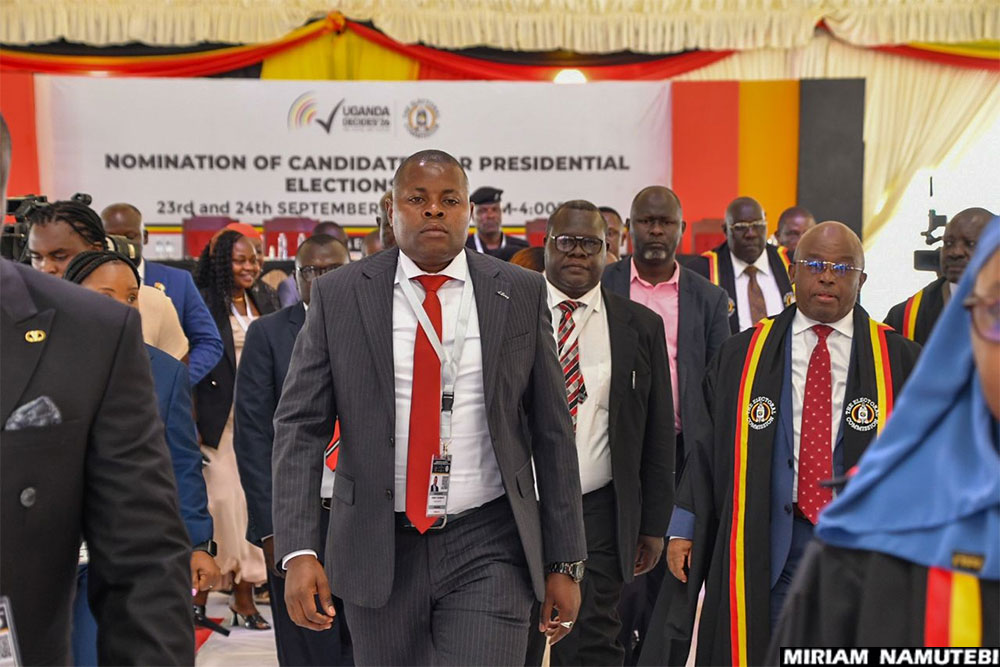
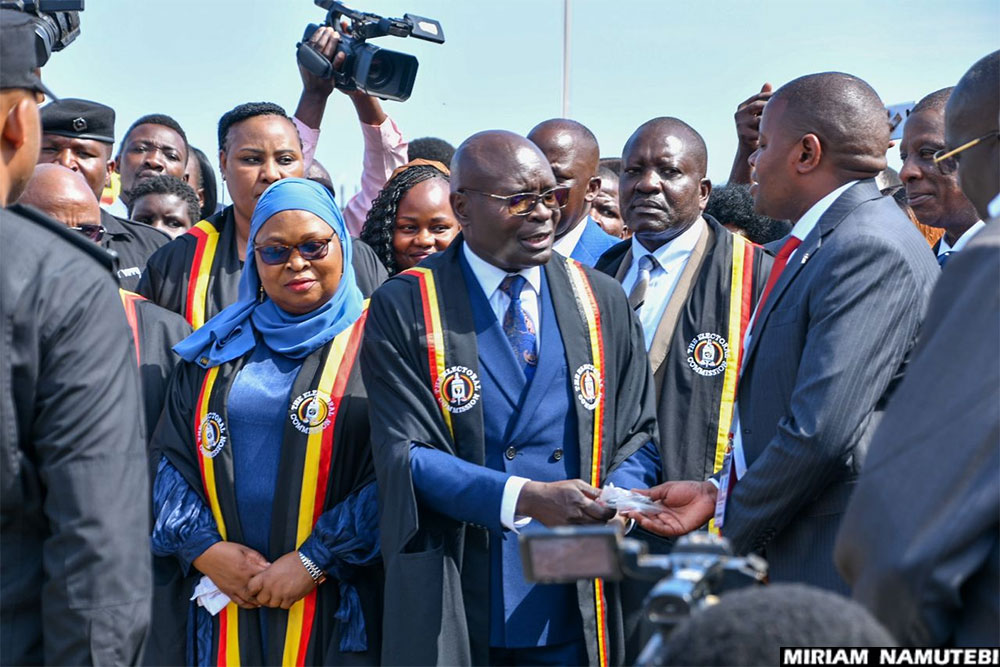
After nomination, Kasibante described his campaign as a movement, a revolution that will be exercised through the ballot box, he noted that he has come to return the power to the common man - the peasant.
"This nomination is not mine alone. It belongs to every farmer, every fisherman, every mother in the village, market, every youth and every person who wants change. The peasants of this nation have been forgotten. They have fed this country, raised leaders, but they remain poor, traveling on bad roads, have no decent health care, and low prices for their agricultural products. I want to tell you that your time has come. This campaign is not built on promises, but on purpose," Kasibante said.
As a peasant, he said he understands the struggles many peasants go through.
"I was raised like many of you, walked barefoot, ate cassava and beans, waited in long lines at understaffed clinics. We must break the walls of inequality where the peasant's job is to feed the powerful. We must restore our dignity. We deserve a future that works for all of us, not just a few," Kasibante said.
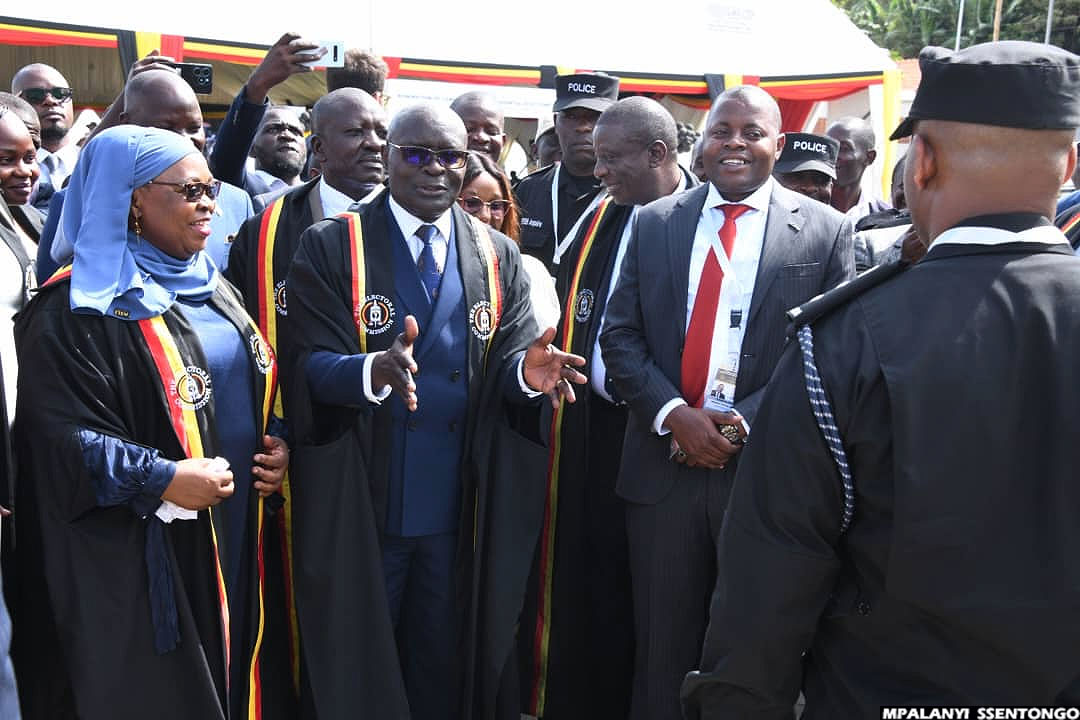
LAND REFORMS
If elected, Kasibante promised to fight for land reforms that protect peasants from illegal evictions and land grabbing, entrench agricultural modernisation that supports smallholder farmers, promote free education for all children and decentralise healthcare systems.
He also pledged to focus on youth empowerment and developing rural enterprises.
"I want to build a model where the majority is empowered, not exploited. "To every peasant, to every forgotten citizen, you are not alone. This is your campaign. This is your time. Let us work together, speak together, vote together and win together," Kasibante said.